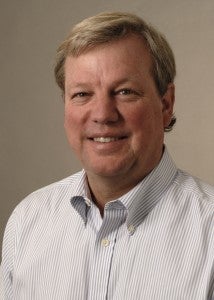 I’ve seen many energy issues expand and contract in the years I’ve been with EDF since 1988. Our organization has celebrated and participated in many victories regarding climate change, including landmark legislation that put limits for the first time on California’s greenhouse gas emissions, the elimination of eight out of 11 new coal plants in Texas as part of the utility TXU’s buyout and federal standards for controlling air pollution from unconventional gas activities. At the same time, we’ve seen clean energy sources both praised and attacked.
I’ve seen many energy issues expand and contract in the years I’ve been with EDF since 1988. Our organization has celebrated and participated in many victories regarding climate change, including landmark legislation that put limits for the first time on California’s greenhouse gas emissions, the elimination of eight out of 11 new coal plants in Texas as part of the utility TXU’s buyout and federal standards for controlling air pollution from unconventional gas activities. At the same time, we’ve seen clean energy sources both praised and attacked.
No issue, however, has been as thorny as natural gas. We used to think if we just switched from coal or oil to natural gas, we could be certain that the climate change scenario would improve dramatically. But with lingering uncertainty around just how much methane, a very potent greenhouse, is being emitted and is leaking out across the natural gas system, we are still weighing the amount of climate benefit of its use.
When you don’t know something that you want to know, you turn to experts who either have the knowledge or can acquire the knowledge by asking the right questions. So, as head of EDF’s US Climate and Energy Program, I’ve assembled a team whose judgment I trust to find answers to the question that defines our gas work: How can we minimize the risks associated with operations and maximize the inherent climate benefit of natural gas?
Over the years, I’ve worked with many commendable professionals on energy issues. Tapping the best and brightest for our natural gas team means finding those professionals who have worked in all aspects of the energy arena. That encompasses those within industry, at the state or federal regulatory levels, or whoever understands the issues, the people and the detailed processes.
Like any other team at EDF, our natural gas team is made up of seasoned environmental lawyers, former regulators and policy leaders, technically astute scientists and engineers. Dealing with unconventional shale plays has meant making some unconventional hires at EDF, including several people who have years of experience working for the oil and gas industry. But what better way to distill the most salient points of an issue than go to those who know exactly how to drill down (pun intended) into them by way of experience.
EDF’s hallmark is finding market-based solutions to challenging environmental problems using the facts. For our natural gas work, this has meant looking at the effects of rapid development squarely – not for where we want it to be, but for where it is – and focusing our efforts to have the most impact on those dealing with the repercussions of poor industry practices.
These dedicated professionals likely could make a higher salary at other venues, but choose to leave industry to work for EDF because it’s where they know they can make a significant, positive difference. I’m inspired by their dedication and knowledge daily, and I’m confident in the ability of this team to ensure that the time spent on this important issue is not lost while we continue to push for greater adoption of and reliance on “smart power” sources like energy efficiency and renewables.
This is one of a group of posts about why industry experts work at EDF.









